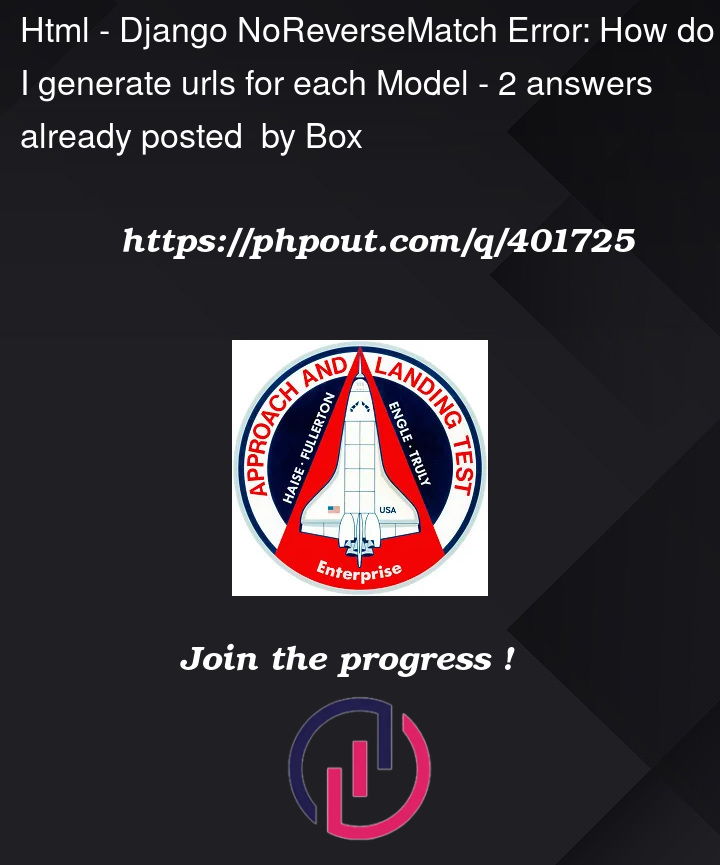I’m facing a NoReverseMatch error in my Django application when trying to generate URLs for product detail pages. The error message indicates that the URL pattern for ‘product-detail’ with the provided pk and slug is not found. Here are the details of my setup:
NoReverseMatch at /earrings
Reverse for ‘product-detail’ with arguments ‘(”, ”)’ not found. 1 pattern(s) tried: [‘product/(?P[0-9]+)/(?P[-a-zA-Z0-9_]+)/Z’]
Model:
class Product(models.Model):
name = models.CharField(max_length=400)
price = models.IntegerField(default=0)
description = RichTextField(null=True, blank=True)
slug = models.SlugField(unique=True, null=True, blank=True, max_length=400)
create_at = models.DateTimeField(null=True, blank=True)
id = models.AutoField(primary_key=True)
def get_absolute_url(self):
return reverse('product-detail', kwargs={'pk': self.pk, 'slug': self.slug})
def __str__(self):
return f'{self.name}'
View:
class ProductDetailView(DetailView): # this is the product detailView
model = Product
template_name = 'tehApp/product_detail.html'
context_object_name = 'products'
def get_context_data(self, *args, **kwargs):
context = super(Product, self).get_context_data(*args, **kwargs)
context['Bar'] = Bar.objects.first()
context['Products'] = Product.objects.all()
return context
def get_object(self):
return get_object_or_404(Product, pk=self.kwargs['pk'])
URL:
urlpatterns = [
path('product/<int:pk>/<slug:slug>/', ProductDetailView.as_view(), name='product-detail'),
]
Template:
{% for product in products %}
<div class="item" data-name="{{ product.name }}" data-price="{{ product.price }}" data-date="{{ product.create_at|date:"Y-m-dTH:i:s" }}">
<div class="relative">
<div class="relative thumbnail">
{% with images=product.images.all %}
{% if images|length > 0 %}
<a href="{% url 'product-detail' product.pk product.slug %}">
<img width="250px" height="250px" class="" src="{{ images.0.image.url }}" alt="">
</a>
{% endif %}
{% if images|length > 1 %}
<img width="100%" height="100%" class="hidden" src="{{ images.1.image.url }}" alt="">
{% endif %}
{% endwith %}
<a href="{% url 'product-detail' product.pk product.slug %}" class="absolute top-0 w-full h-full bg-transparent"></a>
<div class="hidden quickaddtocart">Add to Cart</div>
</div>
<p class="caption"><a href="{% url 'product-detail' product.pk product.slug %}">{{ product.name }}</a></p>
<div class="caption-price">${{ product.price }}</div>
</div>
</div>
{% endfor %}
Please raise further questions if necessary,
Any help or insights would be greatly appreciated!




2
Answers
Solved it, thanks.
It was because of me filling in the super with
Productandself. It had to be emptyyeah it works now, i appreciate everyone for helping
you provide
context['Products'] = Product.objects.all()in views.py.but you use
{% for product in products %}in template.{% for product in Products %}need.